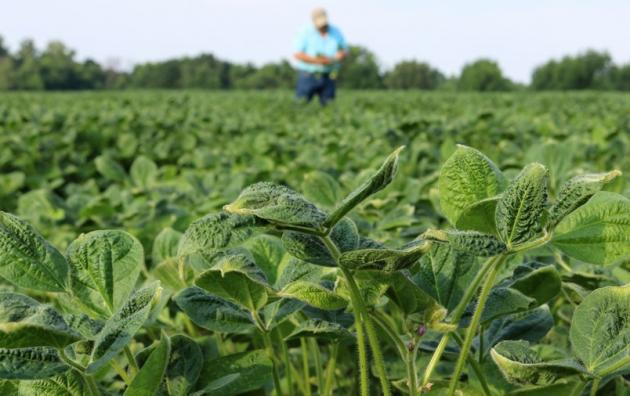Hello from beautiful Louisville, Kentucky and the American Agricultural Law Association Annual Symposium. It’s been a great week of catching up with old friends, meeting new folks, and hearing all about current ag law issues. If you’re a law student or an attorney interested in the world of agricultural law, AALA’s symposium is a must!
Meanwhile, here are some of the ag law stories in the news recently.
*EPA makes changes to labels for popular new Dicamba herbicides for 2018 crop year. On the heels of significant complaints of drift damage involving the herbicide Dicamba, the Environmental Protection Agency has announced changes to the label for Monsanto’s XtendiMax, BASF’s Engenia, and DuPont Pioneer’s FeXapan. Specifically, these products will now be restricted use only, requiring users to be certified applicators and requiring specific Dicamba training. Additionally, top wind speeds allowed for application will decrease from 15 mph to 10 mph, applications may be made only from sunrise to sunset, and additional rules regarding tank clean out and recordkeeping will apply. [Read EPA News Release here and article here.] I’m working on a detailed post discussing the issues surrounding Dicamba damage and the various lawsuits that have been filed. Stay tuned for that soon.

Photo by Chris Bennett
*Iowa “Ag Gag” law challenged. Another “ag gag” law is facing a constitutional challenge. [Read full Complaint here.] This time, it is the Iowa statute, passed in 2012, which makes “agricultural production facility fraud” illegal. The statute criminalizes obtaining access to an agricultural operation by false pretenses and making false statements on employment applications with the intent to take action not authorized by the employer. Plaintiffs include Animal Legal Defense Fund, the American Civil Liberties Union of Iowa, PETA, and the Center for Food Safety and Public Justice. They claim the law violates the First and Fourteenth Amendments. [Read article here.]
*USDA withdraws GIPSA rules. The USDA withdrew two rules under the Farmer Fair Practices Rules of the Grain Inspection, Packers and Stock Yards Act last week. The first was an interim final rule, set to go into effect on October 19, addressing harm to competition. The second was a proposed rule addressing unfair practices and undue preferences. Agricultural trade groups and legislators from agricultural states come down on both sides of the fence, some praising the withdrawal and others sharing their disappointment. [Read article here.]
*Environmental groups seek recognition of rights for Colorado River. In one of the stranger cases I’ve been asked to discuss, a group of environmental plaintiffs seek to file suit on behalf, as “next friend of” or guardian of the Colorado River Ecosystem against the State of Colorado. [Read Complaint here.] The legal theory being put forth is that the Colorado River has certain legal rights, including the rights to “exist, flourish, evolve, regenerate, and restoration.” The lawsuit complains that the river is being harmed by over-appropriation and pollution. Specifically, the suit seeks the court to declare that the Colorado River Ecosystem is a “person” capable of having rights, that it does have the rights mentioned above, and allowing plaintiffs to represent the Ecosystem’s interest as next friend. This seems like a long shot, but were this legal argument to be accepted, it could have significant impacts on agriculture, particularly given that the vast majority of appropriators are agricultural landowners.












